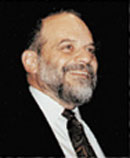
by Rabbi Dov Berl Wein
The parsha of Maasei represents the culmination of the story of Israel’s sojourn in the desert after its escape from Egypt and the revelation of the Torah on Mount Sinai. The Jewish people are poised to enter the Holy Land and to adjust to a more "normal" national existence. Manna will no longer from heaven daily nor will there be miraculous traveling wells of water accompanying them.
But this parsha deals with the issues of borders of Israel instead and the related problems - and to the methods of the division of the land amongst its inhabitants. All of this is pretty mundane stuff compared to the heady experiences of the desert - miracles, plagues, rewards and punishments, Moshe’s masked radiant countenance and the thrill of building and servicing the mishakan. The parsha even tells us that there will be murders and murderers in the Land of Israel and that cities of refuge must be built to house them and protect them from avenging enemies.
From the Midrash it may be implied that there were no such murderous occurrences during Israel’s sojourn in the desert. In short, the rarified atmosphere and purely spiritual existence of Israel in the Sinai desert is now over. The challenges of creating an ordered, just and Torah society under natural national and human conditions are now the order of the day. It will take four centuries, until the times of Shmuel, David and Shlomo for these challenges to be successfully met. The transition from the supernatural to the mundane is much harder to accomplish successfully than is the transition from the ordinary to the spiritual.
To help this transition occur, memory of past events is vital. The newness of the experience of the Land of Israel will be seen in perspective by remembering the previous experiences of Egypt and the desert. Faith and confidence will dominate Jewish life when the Jews recall the history of their existence and their survival and triumph over daunting odds that were present against them.
Rashi indicates that the listing of the thirty-eight encampments of Israel during their trek through the Sinai desert is to remind the Jews of their past difficulties and struggles and how they nevertheless prevailed. Part of the difficulty that Israel faces today in attempting to build a "normal" state and nation is that the early founders of secular Zionism not only denigrated the experiences of the Jewish exile but attempted to erase them from the memory of the "new" Jew they wished to create.
Thus, the problems that challenge and disturb us today here in Israel - boundaries and demographics, value systems and the creation of a kinder, gentler Israel - are compounded by the lack of memory that could help us make reference to previous generations’ wisdom and strengths. The truth is that we have all been here, in one way or another, and common sense would dictate that we therefore remember what happened then.
But, amnesia is the greatest Jewish malady of our day. All of the problems and difficulties that we face are in reality byproducts of that amnesia. Maasei teaches us that we should remember where we have been so that we have a sense of faith and confidence in where we want to now go.

No comments:
Post a Comment